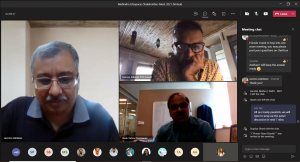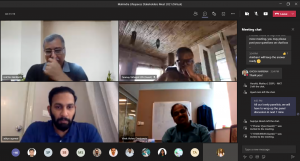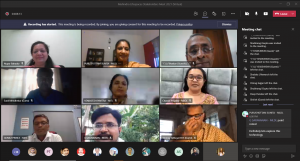
How we are making change
Cascading Sustainable practices through Supply Chain engagement
Any efforts to incorporate sustainability in our operations will not achieve desirable results unless it is cascaded into the supply chain which consists of vendors, suppliers, contractors, and consultants, primarily in India. Recognising this fact, we continued to devote our resources and energies to inculcate the principles of sustainability in our supply chain. Our comprehensive supply chain sustainability program revolves around building the capacities of our partners, periodic engagement, and monitoring.
Sustainability in our supply chain is driven by our Green Supply Chain Management Policy (GSCM), which ensures minimal environmental impact of products and services provided to us, and acts as a tool for managing our social and relationship capital. We also strive to reduce the embodied energy of our products by procuring 50% of the total building materials (by cost) from local suppliers within 400 km radius of the projects. This definition has been developed on the basis of requirements of IGBC/GRIHA for green certification.
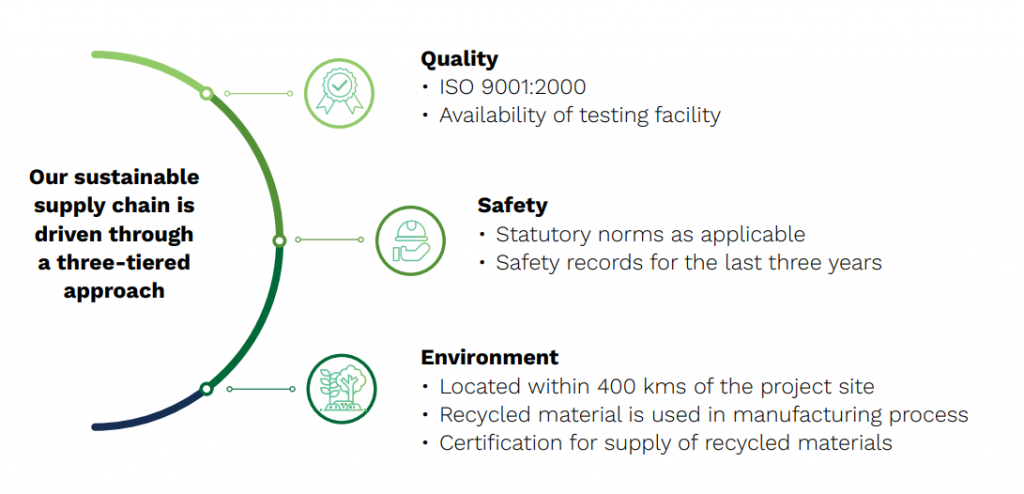
Our supply chain sustainability program
At the pre-construction phase of the project, we assess and screen all our suppliers on various parameters outlined in the policy such as environment, quality, safety, and human rights practices. A clause on adherence to these parameters, especially human rights is mentioned in the contracts with all suppliers. Similarly, we assess our contractors on environment, health, safety, and quality aspects. Periodic audits of the suppliers are also conducted by the staff to ensure compliance with the contract. As part of the onboarding process, we inform all our suppliers about our processes, practices and expectations from them. Additionally, throughout our association with them, we proactively engage and influence suppliers to embrace operational best practices. We conduct Annual Suppliers meet, where sustainability awareness sessions are conducted. We are also trying to reduce the embodied carbon of our products by sourcing green certified products with recycled content. As a part of our GSCM policy we prefer to procure goods and services from vendors who,
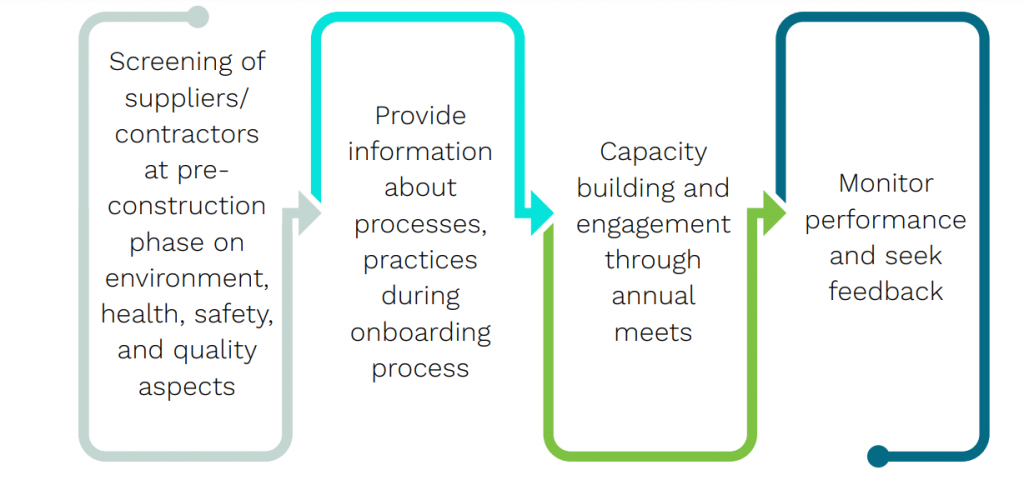
GSCM policy has been modified to reflect our commitment to monitor the supply chain for climate change, environmental, and social risks. Our detailed Code of Conduct for suppliers and contractors spells out their environmental and social responsibility. Compliance with these requirements are a necessity for conducting business with Mahindra Lifespaces. It has defined three levels of standards (Minimum, qualifying, and leadership standards) for the suppliers/ contractors and at minimum, expect them to adhere to minimum standards. We have also introduced a self-assessment tool to enable suppliers/contractors to improve their performance on environmental, social, and governance parameters. The Code of Conduct is dynamic and evolving and will be reviewed on a regular basis. We regularly engage with our supply chain partners to build their capacities and seek feedback to strengthen systems and processes.
We work with our vendors to ensure minimal impact of any events organised by us. We also build the capacities of our consultants on the design features for our products in line with the requirements for green certification and evolving customer requirements. We organised the Suppliers and Contractors Meet at the beginning of 2020 on the theme of ‘future-proofing’, where we shared the vision of sustainability with around 40% of our supplier/contractor base. We continually improve our approach to better realise our goals. We are open to hearing feedback from all stakeholders to strengthen our systems and processes.
Supply Chain Partners
We started our green supply chain management journey nine years ago. We organise stakeholder meets every year to engage with our supply chain partners, share best practices, and recognise partners who have been taking a big leap towards greening their operations. The Annual Stakeholder Meet of 2020 focused on changing contours of the supply chain and the roadblocks to net zero buildings.
